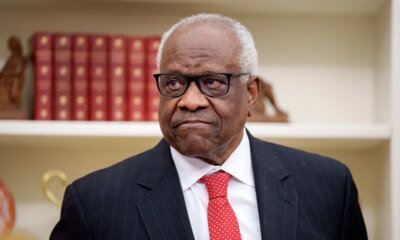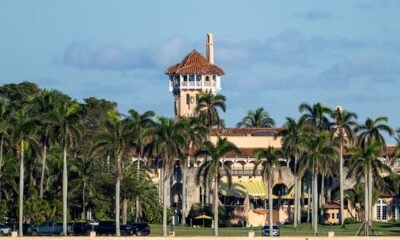INTERNACIONAL
Israel’s strike in Qatar triggers rare US rebuke, tests Trump’s Gulf diplomacy

NEWYou can now listen to Fox News articles!
The White House issued a rare public rebuke of Israel for its strikes on Hamas leaders in Qatar, putting Washington in an awkward position between two key allies.
The Trump administration almost never breaks publicly with Israel on military campaigns. But analysts say the deeper question is how much the U.S. knew in advance — and whether it quietly offered its blessing.
Hamas said the strike killed five of its members but failed to assassinate the group’s negotiating delegation. A Qatari security official also died, underscoring the risk of escalation when Israeli operations spill into the territory of U.S. partners.
«There’s a lot of opaqueness when it comes to exactly what the United States knew and when,» said Daniel Benaim, a senior fellow at the Middle East Institute. «But the President has been pretty clear that he was unhappy with the substance and the process of what happened yesterday. This kind of public statement by a U.S. president in the wake of a strike like this is already very notable in its own right.»
ISRAELI STRIKE TARGETS HAMAS LEADERSHIP IN QATAR
A damaged building, following an Israeli attack on Hamas leaders, according to an Israeli official, in Doha, Qatar, Sept. 9, 2025. (Ibraheem Abu Mustafa/Reuters )
Just days before the strike, Trump issued what he called a «last warning» to Hamas, urging the group to accept a U.S.-backed proposal to release hostages from Gaza. The timing has fueled speculation about whether the strike was connected to Washington’s frustration with Hamas and whether Israel acted with at least tacit U.S. approval.
«It just seems like the Israelis wouldn’t have done this without him knowing,» said Michael Makovsky, CEO of the Jewish Institute for National Security of America.
«They’ve got a U.S. base right in that country with everything going on with the hostage talks. I got a sense that he knew, and it’s hard to understand exactly what happened — that if he knew, he sat on it, and then he told the Qataris only when the missiles were flying.»
But Trump on Tuesday had harsh words about the strike, writing on Truth Social that it «does not advance Israel or America’s goals.»
The White House claimed it learned from the U.S. military that missiles were on the move, and gave warning to the Qataris. Qatar has denied getting any sort of advanced warning.
If Washington knew in advance, why issue the rebuke? If it didn’t, how could Israel act so freely in airspace dominated by the U.S. military? Either option raises uncomfortable questions about America’s leverage.
QATAR THREATENS TO ‘RETALIATE’ AGAINST ISRAEL FOR DOHA STRIKE ON HAMAS
«Israel would not do what it did without some sort of an approval by the U.S.,» said Dr. Yoel Guzansky, senior researcher and head of the Gulf program at Israel’s Institute for National Security Studies. «The Trump administration wants to distance itself, and it’s understandable, because it has good relations with the Qataris.»
That relationship is anchored in hard power. The U.S.’s biggest overseas air base, Al Udeid, sits on Qatari soil and hosts more than 10,000 American troops. Qatar is a top buyer of U.S. weapons and recently gifted the administration with a new Air Force One jet. Yet none of that deterred Israel’s strike. «If indeed the U.S. wasn’t aware, then we have a big problem, because Israel surprised the U.S., and it might cause damage to U.S.-Qatari relations,» Guzansky said.
Others argue the U.S. may have been more aligned with the operation than its rhetoric suggests. «The fact that U.S. defenses at Al Udeid were not used against Israeli jets is a great indicator that Washington was not opposed to the strike,» Ahmad Sharawi, a researcher at the Foundation for Defense of Democracies.
But Qatar’s international Media Office called claims that Qatar was re-evaluating its security partnership with the U.S. «categorically false.»
«It is a clear and failed attempt to drive a wedge between Qatar and the U.S.»
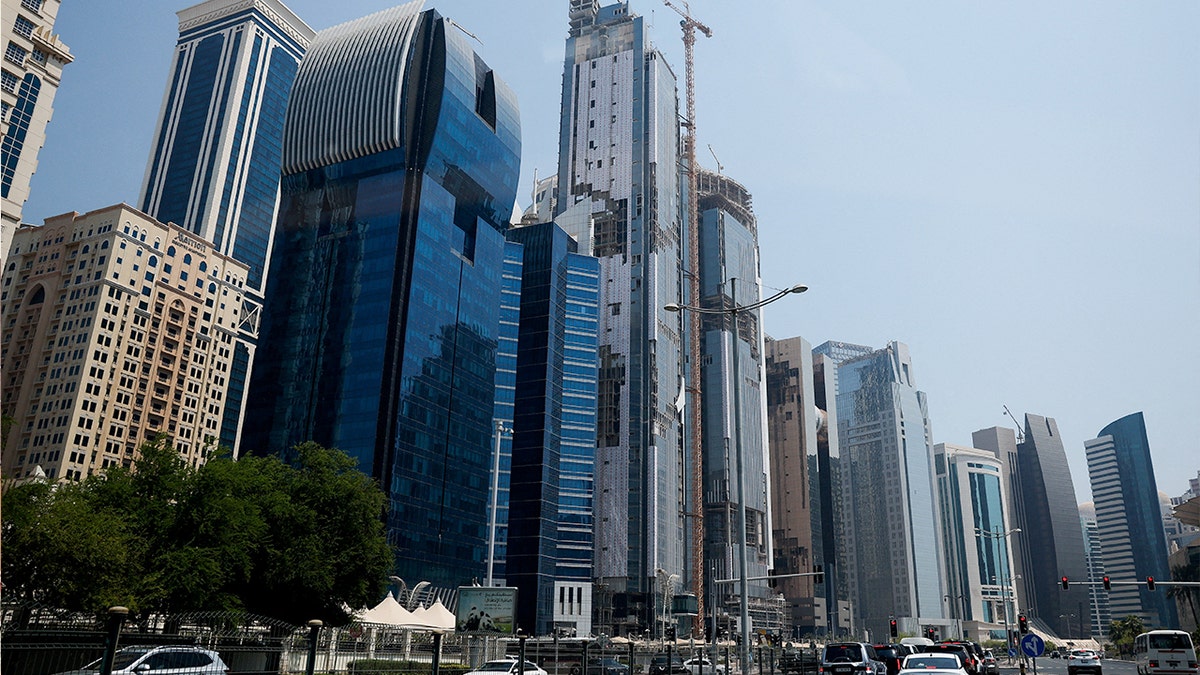
Vehicles stop at a red traffic light, a day after an Israeli attack on Hamas leaders, in Doha, Qatar, Sept. 10, 2025. (Ibraheem Abu Mustafa/Reuters )
Strains on Gulf relationships
The reverberations extend beyond Washington and Doha. The strikes risk unsettling the delicate outreach between Israel, the U.S., and Gulf states, particularly Saudi Arabia, which has been under quiet but sustained pressure to join the Abraham Accords — the U.S.-brokered normalization deals between Israel and Bahrain, Morocco, Sudan and the United Arab Emirates.
«Regional power dynamics are shifting,» said Benaim. «Gulf states are a bit less concerned about the threat from Iran, which was pushing them closer to Israel, and they’re seeing that Israel is engaged in activities across the region, whether it’s Syria or inside Iran or now inside Doha.»
ISRAEL’S DOHA STRIKE SENT A DECISIVE MESSAGE THAT TERROR WILL FIND NO SAFE HAVEN
The divergence is stark. Gulf leaders want de-escalation and stability to rebrand their states as hubs of investment, tourism, and economic recovery. Israel, meanwhile, is pursuing a strategy of direct confrontation with Iran across multiple fronts.
«Gulf states that are really focused on their own economic recovery don’t like the image of smoldering, smoking Gulf cities subject to bombs because they’re trying to attract investment and create an image of common stability,» Benaim said.
That mismatch could slow normalization, even if it doesn’t derail it. «Israel is probably underestimating the power of Gulf solidarity and the barrier being crossed when you see Israel striking inside of a GCC [Gulf Cooperation Council] state,» one former senior State Department official added. «I don’t think that means their relationships are going to fall apart or unravel, but these things cast a long shadow.»
Sharawi counters that Gulf outrage may be less about Israel itself than about the precedent of a strike on GCC soil. «It was an Israeli action against a fellow GCC partner, despite the hostile relationship that countries like Saudi Arabia and the UAE had with Qatar in the past,» he said. «But Gulf leaders are also deeply critical of Qatar for hosting Hamas. Privately, many will understand why Israel acted, even if publicly they condemn it.»
Qatar’s balancing act
For Qatar, the strikes open up both a vulnerability and an opportunity. On the one hand, it cannot allow itself to appear passive in the face of foreign attacks on its soil. Analysts expect Doha to respond through diplomatic channels, critical media coverage, and perhaps limited economic measures against Israel.
But Qatar also has a long history of turning crisis into relevance. «Qataris want to be again the mediator, because they earn a lot of points internationally — especially from the U.S.,» said Guzansky. «It’s in their DNA.»
That means Qatar’s public outrage may coexist with a return to shuttle diplomacy, positioning itself once more as indispensable to ceasefire negotiations.
Sharawi argues that Qatar’s victim narrative also obscures its complicity. «The leadership of a terrorist organization has failed to bring in a sustainable ceasefire, and Qatar has empowered Hamas by hosting them,» he said. «Even though Gulf leaders won’t say it publicly, they are very anti-Hamas. That context matters for how normalization prospects are viewed after this strike.»
Earlier this week Fox News’ Brian Kilmeade told a Qatari spokesperson it sounded more like the nation was «taking Hamas’ side» than playing mediator.
«When one of the parties decides to attack our sovereignty in a residential neighborhood where my countrymen, the residents of Qatar, live in schools and nurseries right next door. Believe me, it’s very difficult to maintain a very calm voice,» foreign ministry spokesperson Majed Al Ansari said.
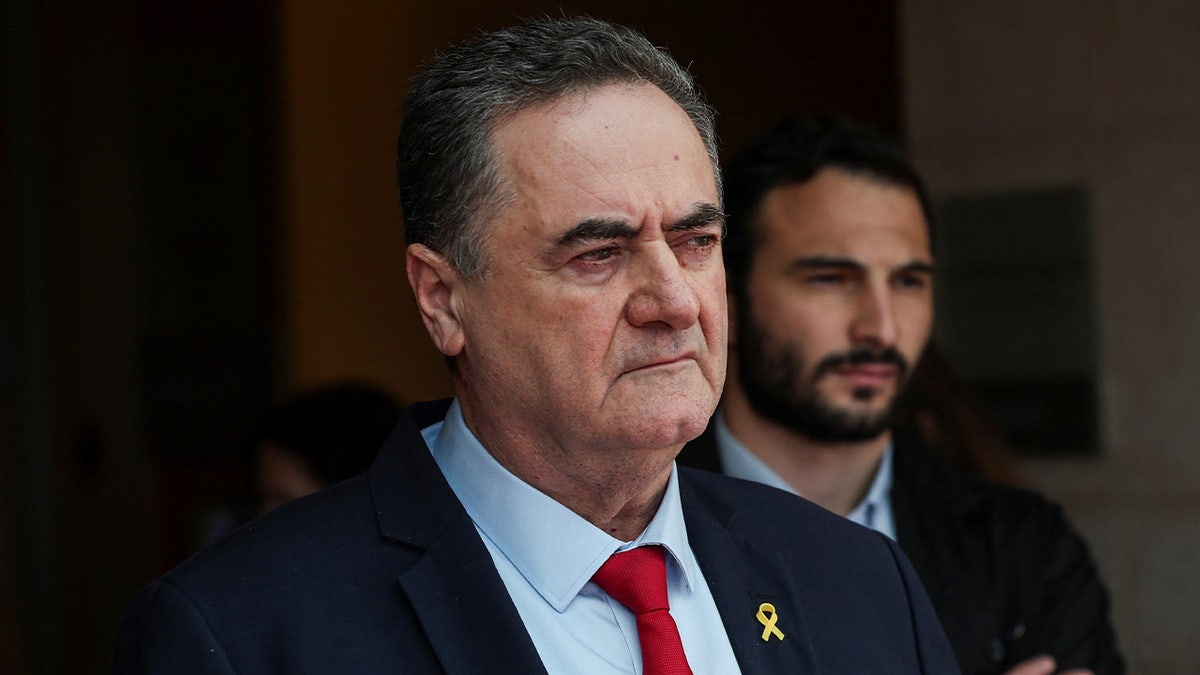
Israel’s defense minister Israel Katz has promised to strike «enemies everywhere» after strikes. (REUTERS/Ronen Zvulun)
A different reaction than Iran
The Doha strikes also highlight an asymmetry in Gulf reactions. When Iran struck Al Udeid Air Base earlier this year, Gulf solidarity with Qatar was muted. This time, condemnations poured in minute by minute.
«You didn’t see Gulf leaders coming and hugging the Qataris after Iran’s strike,» Guzansky noted. «But with Israel, the reaction was much louder, with strong rhetoric across the Arab world.»
Sharawi agrees but frames it differently: «They were overly critical of Israel compared to Iran. The Jordanian king even said Qatar’s security is Jordan’s security — a very strong statement. The Arabs don’t hesitate to latch onto anything that criticizes Israel, and that showed yesterday, even in comparison with Iran.»
The contrast underscores a regional reality: Gulf leaders fear escalation with Tehran, but criticizing Israel carries little risk. For Qatar, the difference offers a chance to rally sympathy and spotlight its sovereignty — even as its neighbors quietly question its choice to host Hamas.
A shadow over normalization
Israel’s military reach is undeniable. But by striking inside Doha, it may have paid a hidden diplomatic price — reinforcing perceptions of Israel as a destabilizing actor at a time when Gulf states seek calm.
The fact that Hamas leaders survived while a Qatari security official was killed may further complicate fallout, heightening anger in Doha while leaving Israel’s core objective incomplete.
CLICK HERE TO GET THE FOX NEWS APP
Israel’s defense minister Israel Katz has promised to strike «enemies everywhere.»
«There is no place where they can hide,» Defense Minister Israel Katz said in a post on X, raising questions about whether a sovereign nation like Turkey, a NATO ally, which houses Hamas senior leaders, may be next.
israel,middle east,conflicts defense,benjamin netanyahu,donald trump
INTERNACIONAL
La muerte del capo narco Nemesio Oseguera, “El Mencho”: Washington dice que es “un gran acontecimiento” para México, Estados Unidos y América Latina
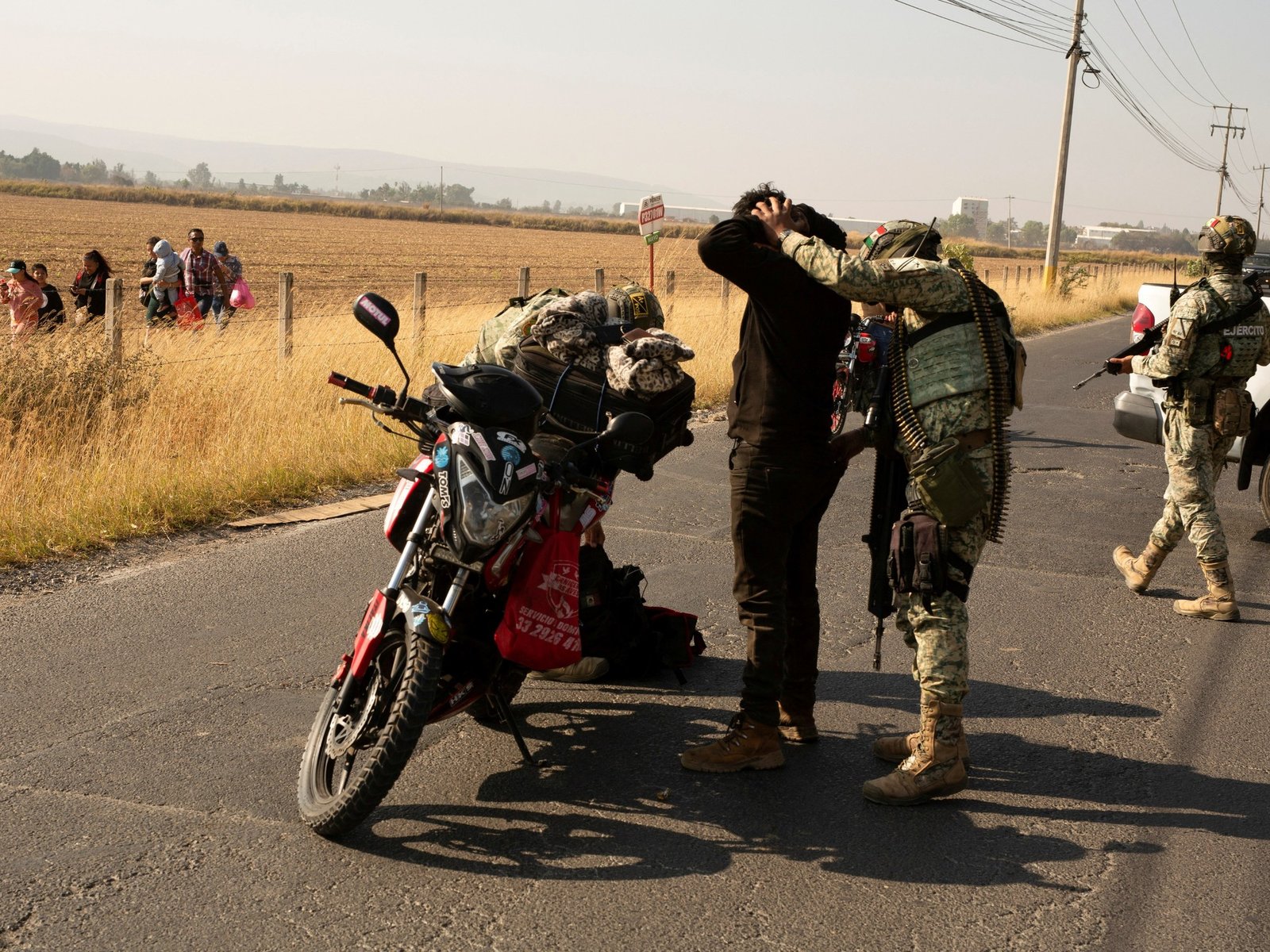
«Se me ha informado que fuerzas de seguridad mexicanas han matado a ‘El Mencho’, uno de los capos de la droga más sanguinarios», dijo en la red X, Christopher Landau, subsecretario de Estado de ese país. «Esto es un gran hito para México, Estados Unidos, América Latina y el mundo (…). Los buenos somos más que los malos. Felicidades a las fuerzas del orden público de la gran nación mexicana», añadió.
El ejército mexicano anunció este domingo que mató al poderoso capo del narcotráfico Nemesio Oseguera «El Mencho», líder del Cártel Jalisco Nueva Generación (CJNG), tras un violento operativo que conmovió al estado de Jalisco.
La muerte del «Mencho» ocurre en medio de la presión del gobierno del presidente estadounidense, Donald Trump, para que México frene el envío de drogas, en particular del fentanilo, a su país.
Trump ha amagado en varias ocasiones con aranceles a las exportaciones mexicanas, al señalar que el gobierno de la presidenta Claudia Sheinbaum no ha hecho lo suficiente para combatir al narcotráfico.
«El Mencho», de 59 años, era uno de los capos más buscados por México y Estados Unidos, que ofrecía una recompensa de 15 millones de dólares. Era uno de los líderes narco más importantes en actividad tras el arresto de los fundadores del Cártel de Sinaloa, Joaquín Guzmán «El Chapo» e Ismael «Mayo» Zambada, actualmente en prisión en Estados Unidos.
El ejército dijo en un comunicado que el «Mencho» resultó herido en un enfrentamiento con militares en la localidad de Tapalpa, en Jalisco (oeste), y murió «durante su traslado vía aérea a la Ciudad de México».
El ejército añadió que, para la ejecución de esta operación, «además de los trabajos de inteligencia militar central» (…) «se contó con información complementaria» por parte de autoridades estadounidenses.
En total, murieron siete delincuentes y tres militares resultaron heridos. Dos miembros del CJNG fueron detenidos y se incautó diverso armamento, como lanzacohetes capaces de derribar aeronaves y destruir vehículos blindados, según la misma fuente.
Sujetos armados bloquearon con autos y camiones incendiados distintas vías de Jalisco, en respuesta al operativo de fuerzas federales en la región. Por la tarde se veían restos de vehículos calcinados y otros aún en llamas en varias carreteras, en medio del sonido de las sirenas de las fuerzas de seguridad.
Las autoridades han señalado que 21 bloqueos carreteros siguen activos. El ejército añadió que elementos militares se concentran en los estados aledaños a Jalisco «para reforzar la seguridad».
El estado de Jalisco, que recibirá cuatro partidos del Mundial de Fútbol de 2026, ordenó la cancelación de eventos masivos este domingo y la suspensión de clases presenciales para el lunes.
En Guadalajara, capital de Jalisco, diversos negocios, desde farmacias hasta tiendas de conveniencia y gasolineras, cerraron sus puertas y las calles lucen semivacías, constató la AFP.
«Llegaron unos sujetos armados, vi la pistola y dijeron que nos saliéramos, nos salimos y tenían un carro con las puertas abiertas. Pensé que nos iban a secuestrar, corrí para enfrente a un puesto de tacos y me resguardé con ellos», dijo a AFP María Medina, quien trabaja en una tienda de conveniencia que fue incendiada por sujetos armados.
Los bloqueos por el operativo en el que murió Oseguera se extendieron también al balneario de Puerto Vallarta y al vecino estado de Michoacán, en donde su organización tiene presencia.
El cártel del «Mencho» fue formado en 2009 y se convirtió en una de las bandas del narcotráfico más violentas de México, según información del Departamento de Justicia estadounidense.
Estados Unidos ha nombrado a ese cártel como una organización terrorista y lo acusa del tráfico de cocaína, heroína, metanfetamina y fentanilo.
Oseguera es también un viejo conocido del actual secretario de Seguridad Pública federal, Omar García Harfuch. El 20 de junio de 2020 el «Mencho» ordenó un inédito asalto armado contra Harfuch en calles de Ciudad de México. El funcionario resultó herido y tres personas murieron, entre ellos dos escoltas.
INTERNACIONAL
Thomas rips Supreme Court tariffs ruling, says majority ‘errs’ on Constitution
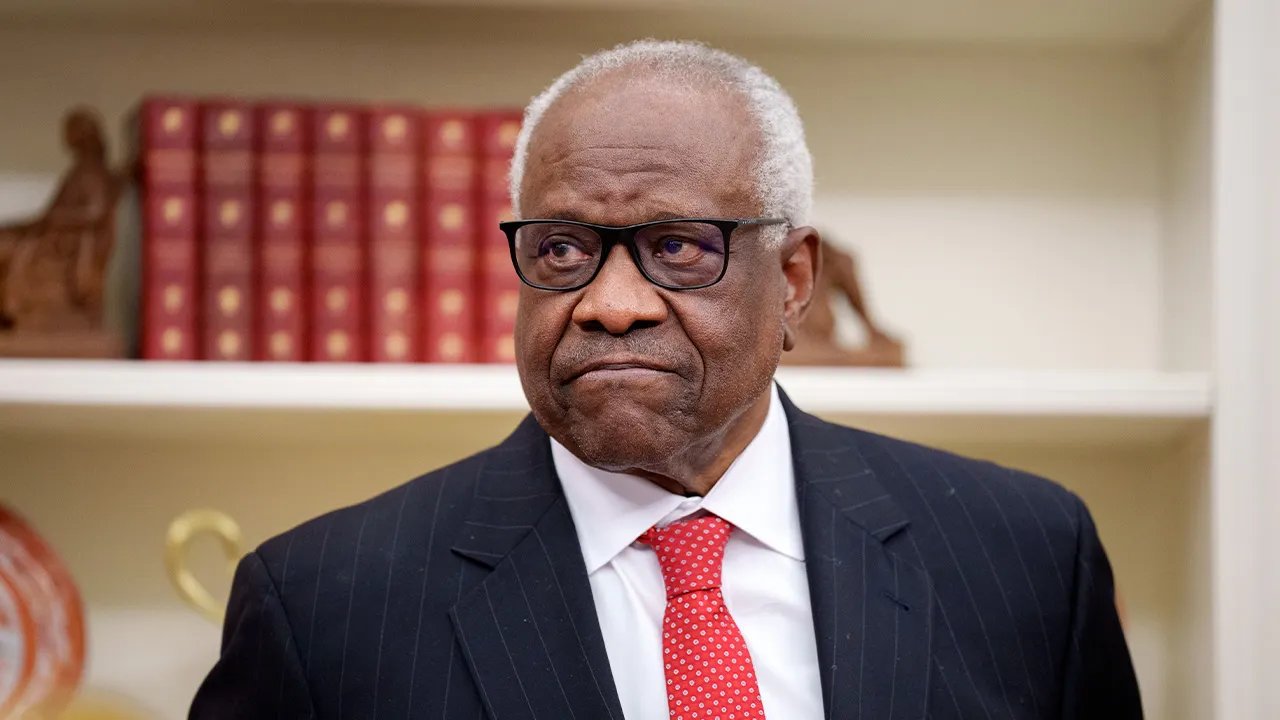
NEWYou can now listen to Fox News articles!
Supreme Court Justice Clarence Thomas ripped the court’s decision blocking President Donald Trump’s use of an emergency law to impose sweeping tariffs on trading partners, calling it a fundamental misread of both the governing statute and the Constitution’s separation of powers.
«As (Kavanaugh) explains, the Court’s decision … cannot be justified as a matter of statutory interpretation. Congress authorized the President to ‘regulate … importation,’» Thomas wrote in his dissent. «Throughout American history, the authority to ‘regulate importation’ has been understood to include the authority to impose duties on imports.»
The court invalidated Trump’s use of an emergency law to impose tariffs in a 6–3 decision Friday morning after weeks of Trump championing that the court should rule in his favor as part of his larger effort to boost the economy, jobs and bring down costs for Americans. Thomas and Justice Samuel Alito joined Justice Brett Kavanaugh in dissenting from the ruling, with Thomas also offering his own separate dissent.
The majority of the court ruled Friday that the International Emergency Economic Powers Act does not authorize the president, even after declaring a national emergency, to impose tariffs — and that Congress did not speak clearly enough to transfer its tariff-and-tax power to the executive branch.
TRUMP RESPONDS TO SUPREME COURT RULING REJECTING SWEEPING TARIFFS POWERS: ‘A DISGRACE’
Supreme Court Justice Clarence Thomas wrote a blistering dissent Feb. 20, 2026, after the Supreme Court found President Donald Trump’s tariffs illegal. (Andrew Harnik/Getty Images)
The International Emergency Economic Powers Act (IEEPA) is a 1977 law that allows the president, after declaring a national emergency in response to foreign threats, to regulate or block certain economic transactions and property interests, such as by imposing sanctions.
«The president asserts the extraordinary power to unilaterally impose tariffs of unlimited amount, duration, and scope,» Supreme Court Justice John Roberts wrote for the court. «In light of the breadth, history, and constitutional context of that asserted authority, he must identify clear congressional authorization to exercise it.»
TRUMP’S TARIFF REVENUES HIT RECORD HIGHS AS SUPREME COURT DEALS MAJOR BLOW
In his dissent, Thomas argued that nondelegation doctrine is a narrow constraint, saying a line is crossed only when Congress delegates «core» power to make rules triggering deprivations of «life, liberty, or property» — not «from delegating other kinds of power,» such as tariffs.
The nondelegation doctrine forbids Congress from delegating core legislative power to the president.
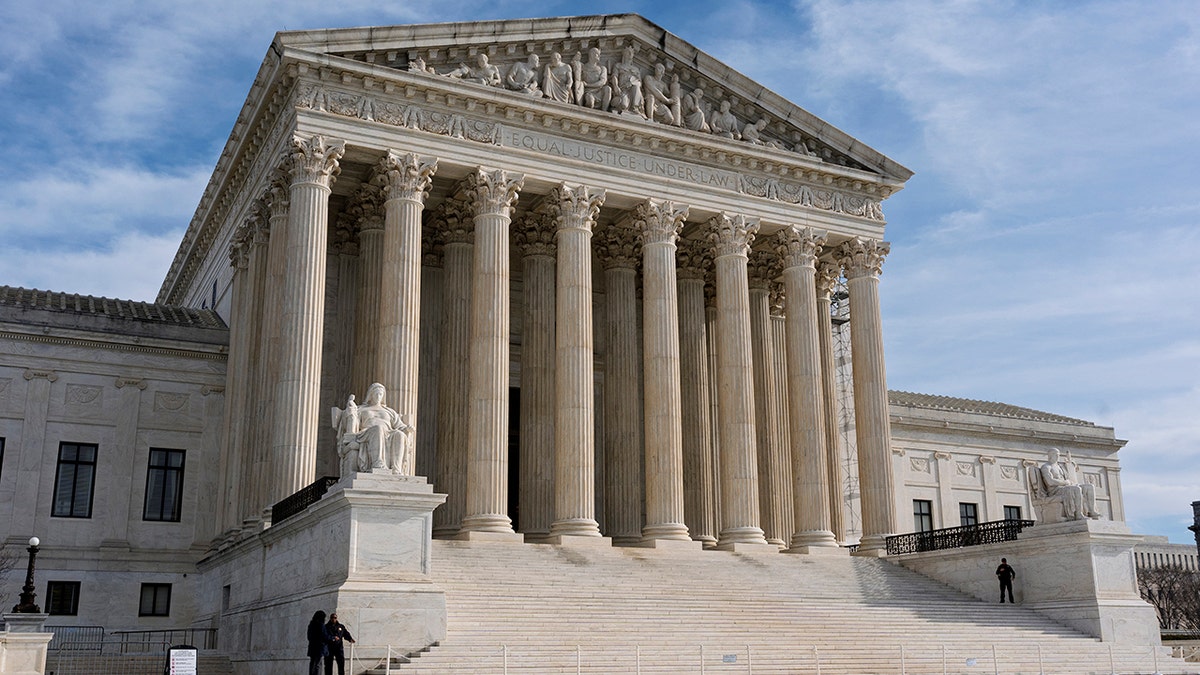
The Supreme Court is seen on Capitol Hill in Washington, Dec. 17, 2024. (AP Photo/J. Scott Applewhite, File)
«As I suggested over a decade ago, the nondelegation doctrine does not apply to ‘a delegation of power to make rules governing private conduct in the area of foreign trade,’ including rules imposing duties on imports,» Thomas wrote. «Therefore, to the extent that the Court relies on ‘separation of powers principles’ to rule against the President is mistaken.»
SUPREME COURT RULES ON TRUMP TARIFFS IN MAJOR TEST OF EXECUTIVE BRANCH POWERS
Thomas pointed to President Nixon’s 1971 import surcharge as a real-world test case that was later upheld in United States v. Yoshida Int’l under IEEPA’s predecessor statute, the Trading with the Enemy Act.
Nixon announced a 10% across-the-board import surcharge on foreign nations in 1971, with the U.S. Court of Customs and Patent Appeals upholding the policy under the same «regulate … importation» language in 1975.

President Donald Trump displays a signed executive order imposing tariffs on imported goods during a «Make America Wealthy Again» trade announcement event in the White House Rose Garden April 2, 2025. (Andrew Harnik/Getty Images)
«The meaning of that phrase was beyond doubt by the time that Congress enacted this statute, shortly after President Nixon’s highly publicized duties on imports were upheld based on identical language,» Thomas wrote.
«The statute that the President relied on therefore authorized him to impose the duties on imports at issue in these cases,» Thomas wrote, adding that Kavanaugh «makes clear that the Court errs in concluding otherwise.»
Trump unveiled his tariff policies in April 2025, which have come with repeatedly updated deals with foreign nations, as a tool to bring parity to U.S. trade policy and encourage businesses to open up shop on U.S. soil as part of an American manufacturing renaissance to boost the job market and the economy.
CLICK HERE TO GET THE FOX NEWS APP
Trump, in recent months, has repeatedly promoted that the Supreme Court rule in his favor, warning just Thursday during a trip to a steel factory in Georgia that «without tariffs, this country would be in such trouble right now.»
The president held a press conference shortly after the decision on Friday, announcing a 10% global tariff, while underscoring that the «Supreme Court did not overrule tariffs,» but «merely overruled a particular use of IEEPA tariffs.»
donald trump,economy,supreme court,politics,law
INTERNACIONAL
Iran could ‘activate’ Hezbollah if US targets regime, Trump’s inner circle to decide: expert

NEWYou can now listen to Fox News articles!
Iran’s Islamic Revolutionary Guard Corps (IRGC) has tightened control over Hezbollah in the Middle East amid looming prospects of potential U.S. strikes, according to reports.
According to the Jerusalem Post, the tactical shift comes as Hezbollah and Iran prepare for military confrontation in the region, with analysts warning that if Washington specifically strikes the regime, Hezbollah is ready to be «activated.»
«If the regime in Tehran feels threatened, the likelihood of unleashing Hezbollah against Israel and U.S. regional assets increases substantially,» Ross Harrison, a senior fellow at the Middle East Institute, told Fox News Digital.
«Hezbollah would not be activated right away, unless the attack immediately targets the leadership of the Islamic Republic. But as part of a graduated response, Hezbollah will likely be seen as an asset,» he said.
«If it faces an existential risk, then Iran may throw caution to the wind and try to deploy Hezbollah to the maximum,» Harrison, author of «Decoding Iran’s Foreign Policy» explained.
IRAN SIGNALS NUCLEAR PROGRESS IN GENEVA AS TRUMP CALLS FOR FULL DISMANTLEMENT
«As part of a graduated response, Hezbollah will likely be seen as an asset,» Ross Harrison, a senior fellow at the Middle East Institute, told Fox News Digital. (Fadel Itani/NurPhoto via Getty Images)
President Donald Trump previously gave Iran a deadline of 10 to 15 days to respond to a deal, raising questions about what steps Washington could take if Tehran fails to comply.
A new round of talks is now scheduled for Thursday in Geneva and expected to focus on Iran’s nuclear program, including uranium enrichment levels and sanctions relief.
«The decision-making circle in the White House is very small regarding Iran, with the president keeping a close hand on it all,» Harrison explained.
He added that any decision to directly target the Iranian regime would likely rest within Trump’s inner circle of advisers.
«Normally there is input from the National Security Council and the wider intelligence community,» Harrison said. «Since the decision-making process in the White House is opaque, it is hard to know how much of this is getting through.»
WITKOFF WARNS IRAN IS ‘A WEEK AWAY’ FROM ‘BOMB-MAKING MATERIAL’ AS TRUMP WEIGHS ACTION
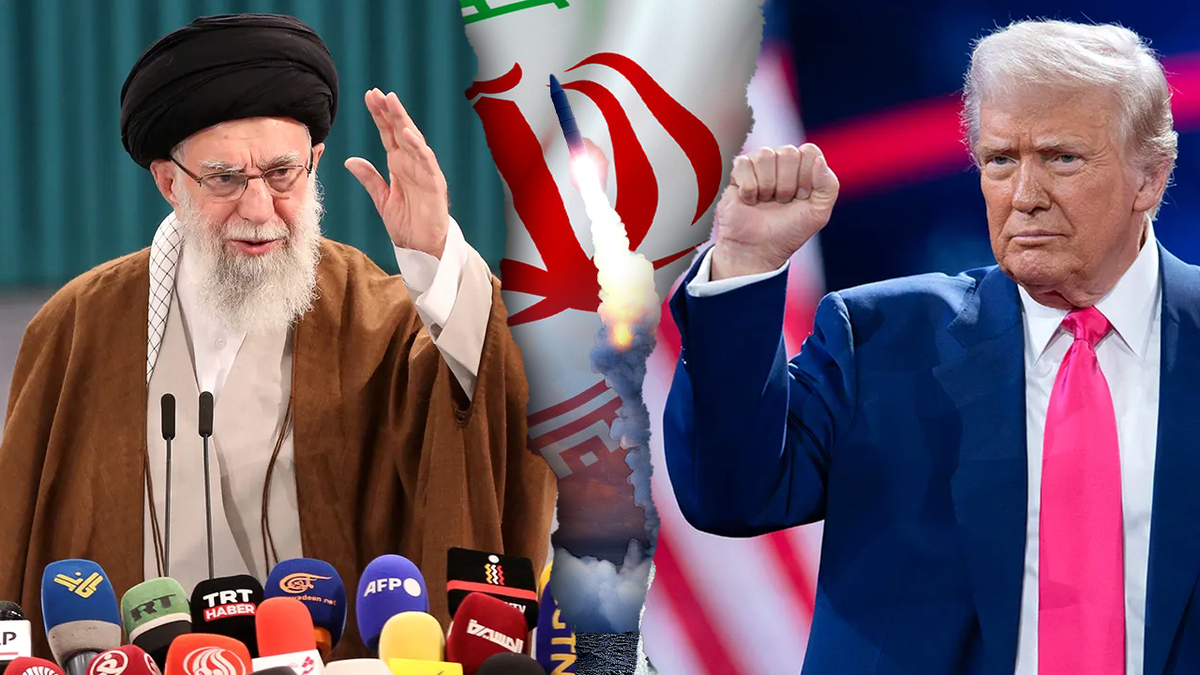
Another round of talks between the U.S. and Iran is slated for Thursday in Geneva. (Getty Images)
«If the U.S. is engaging with the Saudis and Emiratis, they are getting warnings about the possibility of this war spreading to the broader region, which would be deleterious to the U.S. and its allies,» he added.
Harrison also warned that there was «potential for attacks to spread across the region, to Israel through direct Iranian ballistic attacks and via Hezbollah, and to the Gulf Arab states through Iran directly and possibly via the Houthis from Yemen.»
Regional media reports also suggest Iran’s ties with Hezbollah are strengthening. Sources told Al Arabiya and Al Hadath that IRGC officers have been rebuilding Hezbollah’s military infrastructure and managing strategic war plans.
The coordination follows changes within Hezbollah’s leadership, Harrison explained.
«Since the killing by Israel of Hezbollah leader Hassan Nasrallah last year, ties and operational coordination have to some degree been reestablished,» he said.
«The IRGC has supported Hezbollah in Lebanon for decades,» he said, adding that efforts to reestablish ties appear to be occurring «particularly in light of the destruction of Iran’s nuclear sites last June.»
IRAN DRAWS MISSILE RED LINE AS ANALYSTS WARN TEHRAN IS STALLING US TALKS
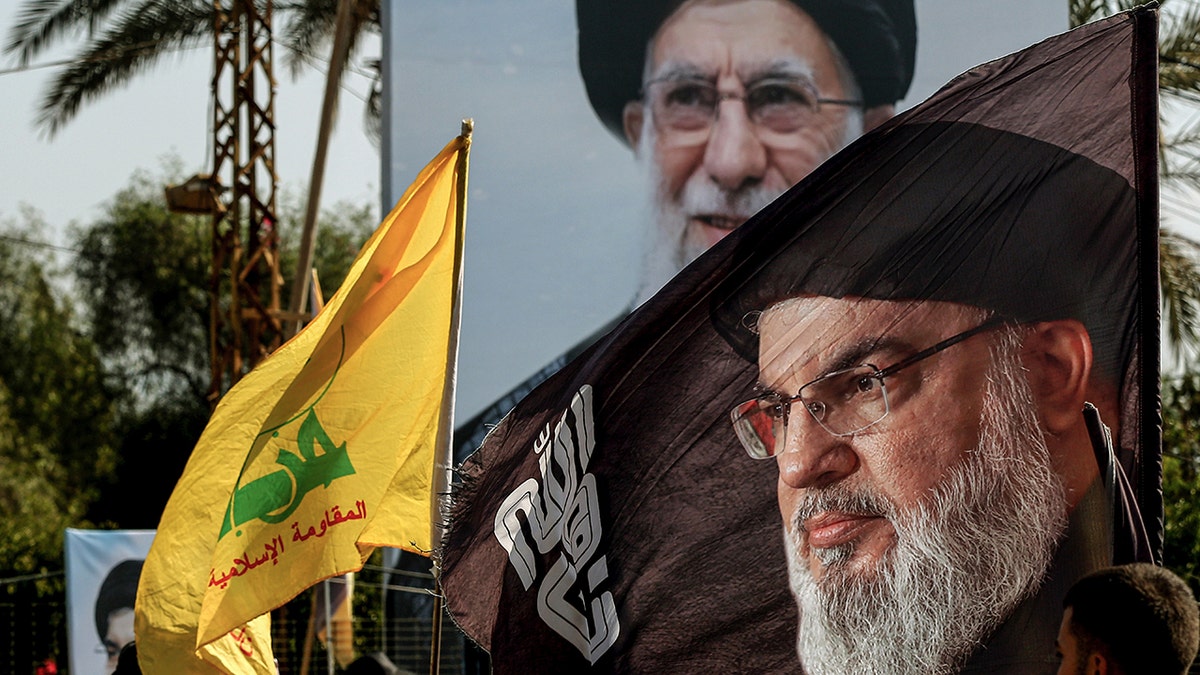
«Since the killing by Israel of Hezbollah leader Hassan Nasrallah last year, ties and operational coordination have to some degree been reestablished,» Harrison said. (Marwan Naamani/picture-alliance/dpa/AP Images)
«Iran is trying to resurrect lost assets, such as its missile program and its connections to Hezbollah,» Harrison said.
«Hezbollah has been seen for decades by Iran as a deterrence asset against an Israeli or American attack. Since Hezbollah has its own interests, connected to but separate from Iran, whether its leadership will go all the way for Tehran is unknown,» he concluded.
CLICK HERE TO DOWNLOAD THE FOX NEWS APP
The developments surrounding Hezbollah and the IRGC came as Supreme Leader Ayatollah Ali Khamenei has appointed close ally Ali Larijani as the country’s de facto leader, according to reports.
Fox News Digital has reached out to the White House for comment.
middle east,iran,ali khamenei,donald trump,middle east foreign policy,israel,lebanon

 ECONOMIA2 días ago
ECONOMIA2 días agoVillarruel cuestionó la apertura de importaciones: «Sin industria, se pasa a depender de China»

 POLITICA2 días ago
POLITICA2 días ago“Ahora es la hora de jugarse”: el mensaje de Patricia Bullrich a los empresarios tras aprobarse la reforma laboral

 ECONOMIA2 días ago
ECONOMIA2 días agoSegún un especialista, el precio de la carne se mantendrá alto “entre dos y tres años”



